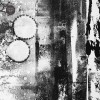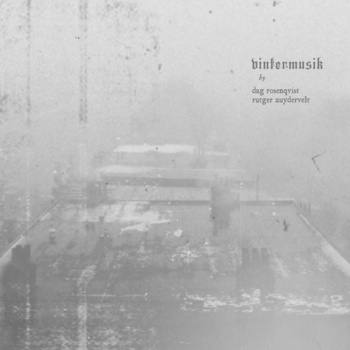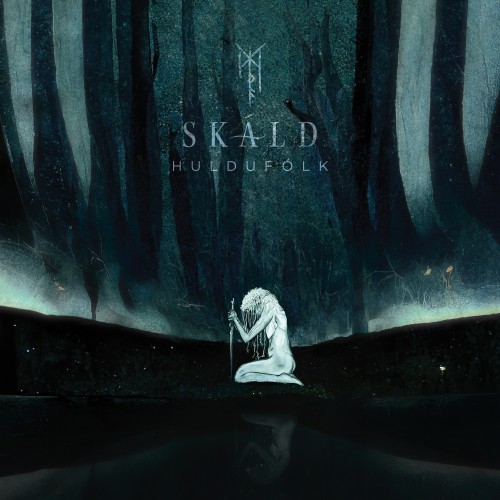 Ekoplekz‘s Four Track Mind isn’t necessarily Unfidelity‘s evil twin – more like its astral double that departs the flesh for regions unknown. And since Unfidelity was already well beyond the Oort Cloud, that’s pretty far out indeed.
Ekoplekz‘s Four Track Mind isn’t necessarily Unfidelity‘s evil twin – more like its astral double that departs the flesh for regions unknown. And since Unfidelity was already well beyond the Oort Cloud, that’s pretty far out indeed.
The music was culled from the same process that yielded Unfidelity, released in March of this year, which means two double LPs in less than 12 months for the illustrious Planet Mu. For those eagerly tracing the lineage of Delia Derbyshire, Brian Hodgson, King Tubby and Bristolian bassweight, we are living in a new alchemical age.
Nick Edwards‘ career could serve as a road map for the cultural alarmists and doomsayers crying “the death of this and that.” He has weathered every storm by not really giving a damn, continually releasing an onslaught of limited edition cassettes, vinyl and CDs of rough-hewn, hand-carved electronica. Ekoplekz (and the many –plekz pseudonyms) serve as an institution unto themselves, as well as a flagship and torch-bearer for a certain cross-section of experimental techno who aren’t afraid to get noisy and weird, to try new things and break the cruel iron binds of the 4/4 grid.https://www.youtube.com/watch?v=eXZKMQje9yg
When you look at music history, particularly in hindsight, there is often times a perceived divide between ‘high’ and ‘low’ art, between ‘art’ and ‘folk.’ Taken into the twentieth century, this rift could be extended to ‘avant-garde’ and ‘experimental’ and ‘pop.’ Pretty much anyone with ears — and definitely any music fan alive in 2014 — will tell you this is not very representative of real life, where the futurist frequently rubs shoulders with the populist.Dance music, almost by definition, is pop music. It serves a function, which is to lose it on the dancefloor for a couple of hours. Now, electronic music is not always dance music, although dance music is almost always exclusively electronic music. This means that electronic music is prey to many of pop music’s weaknesses, while absorbing many of its strengths. This particularly came to a head during the explosion/implosion/bro-ification of dubstep, the scene out of which Nick Edwards sprang. Dubstep went from being a weird, murky, militant, drug-addled, melancholy dancefloor form to being a primal low-end beast, beloved by billions. And while many got off on exploring the extreme possibilities of amplified bass frequencies with laser-like precision, its popularity quickly killed any form which did not conform. It was all 135 bpm with a wobble beat drop every 32 bars or so. It seemed that every derivative of dance music, from techno to disco to house, was becoming über-clean, clear, polished and placed. It seemed that pop music had won out, after all, and we all might as well learn to stop worrying and love the monoculture.
But, as is always the case with culture, there was an occult vein running beneath the surface — the sonic alchemists and modular magicians, who kept on, as they always have, in basements and caves, serving as a king of underground resistance to the bleached, tanned and plucked world of pop. Funnily enough, almost as a kind of irony, this abstract and abrasive tendency would gain some traction, as a result of the complete over-saturation (and some might say stupefaction) of the pop world they had retreated from, allowing labels like Dominick Fernow‘s Hospital Productions, Regis’ Downwards Records (RIP), Powell‘s Diagonal Records and Basic House‘s Opal Tapes to catch on and nearly take over the electronic world. As a result, we are enjoying a renaissance of academic, avant-garde, cyberpunk, dystopian, sci-fi electronics to catch on that we haven’t seen since roughly 1967-1977.Anyway, getting back to my original point, before that impossible dérive, Nick Edwards (and co.) dismantle the illusory binary between pop and avant-garde. He represents an age (starting in the late ’70s, probably earlier) of folks who grew up simultaneously loving Doctor Who and obscure, futurist British television, while at the same time losing their shit to punk rock and flipping wigs at the same time. What do you think that person’s music is going to sound like, if they’re being true to themselves?
Nick Edwards is equal parts Dick Raaijmakers and Mad Professor; not to mention Stefan Betke and Richard H. Kirk. He also represents his hometown of Bristol’s fascination with Jamaican soundsystem culture. Oddly enough, there are moments on Four Track Mind that bring to mind nothing so much as an outer space dub record, thanks to the unexpected presence of bass guitar and moments of disembodied melodica. But it’s also like shooting into hyperdrive, rushing through a micro-processor and staring into an oil slick, so don’t think yr getting off easy, pigeonholing the many-named one.My favorite thing about Ekoplekz, and his dismissal of trends and rules, is the re-introduction of the slow-build, of cavernous dubscapes that gradually morph and flow, like one of HR Giger‘s biomechanoids. Pop music never takes the time to ebb and flow — something’s gotta give every 32 bars or so, and yr pretty much chained to the verse — chorus — verse – chorus — chorus form The Beatles brought down on clay tablets. This is too bad, especially with electronic music, which is uniquely effective at creating hypnotic, lulling headspaces, oftentimes being loop-(and pattern-) based in nature. Nick Edwards will chant you down a big wormhole tunnel, as his beats massage the theta rhythms in yr frontal lobes.
My other favorite thing about Mr Edwards’ music is the fact that he doesn’t feel the need to make his synths (or whatever the hell they are) conform to melody or harmony. Instead, simple one- and two-note motifs are through a boggling array of rainbow-like flangers, doppeldanger dub echo boxes, stainless steel resonators. Where most “musicians” feel the need to play “music,” oftentimes it sounds like Ekoplekz is playing prisms, dust motes, radar waves, rain drops. That makes the material on Four Track Mind more like soundscapes or worlds unto themselves. Or maybe they’re doorways.All of this sounds like Four Track Mind is so much rhythmic scrape and mind-numbing repetition, but this is not entirely indicative. Because Ekoplekz has a dancefloor sensibility, like a real hot-blooded DJ. The kind that make people sweat and writhe. It’s there in his music, the weirdness is just to scare off the punters. “Reflexive” is a total d’n’b burner, even if it is made of burnished bronze and hissing steam, and the bass on “Four Track Mind” beats like a spring loaded rubber mallet, aternatingly punching and massaging yr sternum. The loopy, gloopy “Tantrikz” (one of my favorites on here), is dead sexy, in a weird and cosmic way. It’s like having the holograph of Persian temple musicians drumming away while a snake charmer beckons the lunar eclipse. I cannot wait to transform my chapel with this hashishin chant.
All in all, Four Track Mind is kind of like the experimental sibling of Unfidelity, but in reality, the two are like some intergalactic Gilgamesh and Enkidu, come to deliver us from the barbarism of binary thinking and poor taste. The album has a little more of a tape-hewn fidelity than its predecessor, making it a bit more of a fuzzy warble, but also imbuing some weird warmth. My advice, (and trust me on this, one of my very few areas of special expertise), I advise getting both, and listening to them repetitively throughout the afternoon. It will take you places. It will make you see stars.And, most importantly, it will inspire you, and instill a deep-seated love of this generous producer and his many boxes of wonders, and lead you down an incline of weird and wonderful art and culture. Yr life will be wonderful and interesting, but you will be poor.
-J Simpson-



